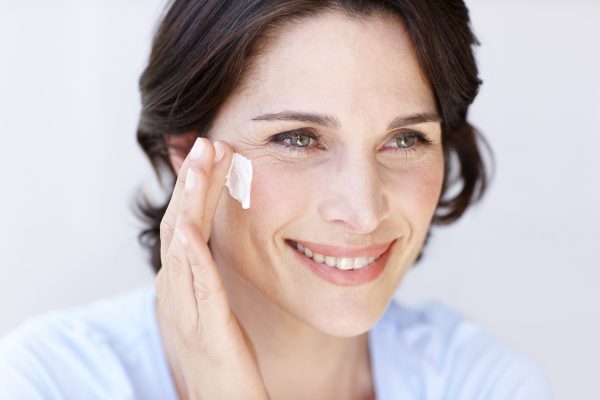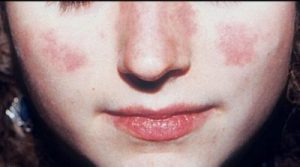
You know that the appearance of your skin changes as you age — but do you know why that happens? Many different changes interact together to alter the appearance of skin as we age, and science can explain what happens and why. Here are 10 ways that your skin changes as you age:
Your oil production slows down.
No matter what your skin type was in your youth, you lose both oil and sweat glands as you age. This means that dry skin becomes even drier, while oily skin will get less greasy. By age 60, pretty much everyone has dry skin to one degree or another. As a result, your skin probably won’t tolerate drying skin care products such as exfoliants and retinol as well as it used to. Instead, you’ll need to focus on hydrating and moisturizing skin tightening creams to keep your face from becoming even more dry. A humidifier can also help put moisture back in the air if you live somewhere very cold or dry.
Your epidermis gets thinner.
As you get older, the outer layer of your epidermis becomes thinner, even though the number of layers in your skin doesn’t change. You will probably notice your skin becoming more transparent, so the veins underneath it will be more visible. Thinner skin is also more fragile and prone to irritation, which has other implications for your skin, such as it being slower to heal from wounds.
You might become more sensitive to products.
If you’ve noticed that a skincare project you’ve used for years is suddenly irritating your skin, you’re not imagining things. As your skin becomes drier and thinner, it also becomes more sensitive to potential irritants. You might find yourself developing new skin allergies or reacting to products that you previously used without a problem. This includes not just skincare products but also soaps, detergents, fabrics and other items that come in direct contact with your skin.
Your skin might itch more often.
This increased sensitivity plus extra dry skin is a recipe for itchiness. Many seniors struggle with winter itch when the weather becomes cold, but your skin can be itchy year round. Since your skin is thinner and more delicate at this age, scratching can also lead to irritation and even create open wounds in the skin, which can cause infection. Instead of scratching itchy skin, apply soothing topical products that are targeted toward eczema and related skin conditions. Using a hydrocortisone cream or another topical treatment can also relieve the itch temporarily.
Your skin becomes less elastic.
In addition to losing oil and sweat glands, your skin cells also produce less collagen and elastin as you age. Collagen and elastin are proteins that are responsible for keeping your skin supple and plump, and they are the reason your skin “springs back” when you make a face or press on it. As you age, your skin will become less elastic due to this loss of collagen and elastin, which contributes to the formation of wrinkles and fine lines.
You will probably notice some sagging.
This loss of collagen and elastin also contributes to skin sagging, but it’s not the only season why it happens. As you get older, you lose subcutaneous fat in your face, most noticeably around your cheeks, temples, chin, nose and eyes. You may also experience bone loss after age 50 or so. Your skin will become looser and sag as this happens, and your eyes may also appear sunken. Gravity pulling on your skin over time will exacerbate these effects and contribute to more sagging.
Your skin becomes slower to heal.
Your cells redivide more slowly as you age, which means that your entire body becomes slower to heal, including your skin. Cuts and scrapes that once closed up immediately may linger, causing you pain and leading to infection. Be vigilant about wound care, keeping the area clean and covered and applying healing ointments. See a doctor if a wound refuses to close or heal, since festering wounds can lead to other health complications.
You might bruise more easily.
The walls of your blood vessels thin over time, meaning that you will bruise more easily as you age. The thinner, more transparent nature of your skin also means that bruises will appear more easily and look worse than they did when you were younger. Bruises will also take longer to heal than they previously did. Take care when you are moving around and avoid bumping into objects. Don’t press or poke your skin unnecessarily, and be gentle when washing it or applying your 3-step skincare routine.
You will probably develop age spots.
As a result of cumulative UV damage, most older people develop age spots, which appear as flat brown spots of darker pigmentation. They commonly appear on areas that are exposed to the sun, such as the face, hands, arms, back and feet. Using a broad spectrum sunscreen may help to prevent the appearance of age spots and may help current age spots from getting worse.
You might notice more skin growths.
Most people also develop more skin growths as they age. Some of these, such as skin tags, are harmless. However, others may be cancerous and should be checked by a doctor immediately. Examine your entire body once a month for moles and growths that exhibit the following signs: asymmetrical appearance, irregular borders, color changes or variation, diameter bigger than a pencil eraser and changes in appearance or growth over time.
We hope this guide cleared up any confusion around how and why skin changes as you age! Don’t forget to apply sunscreen every day to help slow the signs of premature aging and reduce your risk of getting skin cancer.




